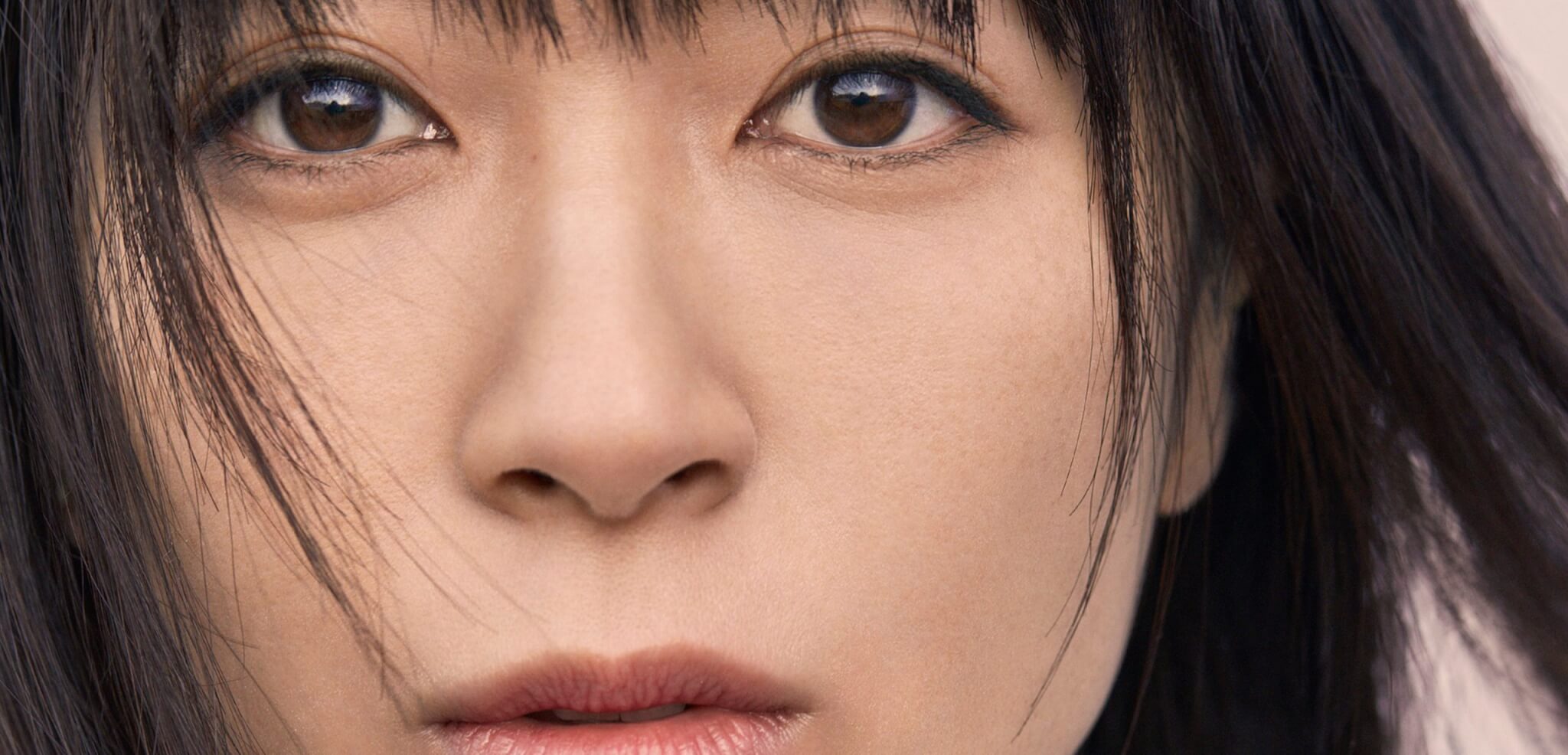“Everything will, without exception, surely, without a doubt, eventually end. Just as it will always be.”
Utada Hikaru is beginning anew. Again.
Two years after Fantome, a heartbroken-but-hopeful return after a nearly decade-long break between studio albums, the tragic death of her mother and the birth of her son, the singer now finds herself newly divorced from her child’s father; a global music superstar living the single life in London.
What better time than to reflect on love?
Hatsukoi, or “First Love,” is a nod to the title of her record-shattering debut First Love, released roughly 20 years ago.
The record comprises two years worth of previously released material, and album tracks ranging from solemn hymns set at sea, to hip-hop-tinged sexual frustration, to a sing-songy ode to cilantro. (Or coriander, depending on what it’s called where you live.)
Compared to her chilly 2016 effort, Hatsukoi moves closer towards the light – though not without its own moments in the shadows.
“Fantome had a tense feeling like mourning, but this time it was going in a direction like snow melting from there, a life force like spring had come,” Utada explained in an interview about the album.
Hatsukoi seemingly finds the artist in transition, closing certain chapters of her life and, more importantly, beginning new ones.
Of all the songs on the record, no track feels more representative of this sense of closure, or at least the passage of time, than “Chikai,” the theme song of the long-awaited third and final chapter of the Kingdom Hearts trilogy.
For some, Kingdom Hearts marked the entry point into Utada Hikaru’s career. But it doesn’t matter whether you’ve played the video games. The career-defining songs weave their own narrative, from the blossoming romance of “Hikari” (“I’ll introduce my family / You’ll surely get along well“), to the uncertain, furious “Passion” propelling forth at full speed (“If I face forward will I meet you again? / The future continues on and on…“) to, at long last, the trilogy’s conclusion: “Chikai,” a deeply romantic, deeply emotional sigh of relief.
“I don’t know a thing about fate, but in this moment, I can’t help but acknowledge its existence.”
Although initially drawing some mixed reactions based on previews, likely due to the impossible expectations set by “Hikari,” “Passion,” and the years of waiting since, the piano and string-led production unfolds gorgeously, as Hikki sings of taking a oath, embracing happiness in the moment, trading rings while tearing up at the thought of the past.
The “light” of “Hikari” traveled all the way here after sixteen years: “Light flows in through the wide-open door, I want to stay by your side, now and forever / Since long ago, there’s been no other choice for me,” she declares during the song’s most intriguing moment, a hurried speak-sung declaration two-thirds of the way in. Essentially, these are vows.
It’s an assured plunge – into marriage, or at least, a union – tinged with a sad underlying sense of nostalgia, resistant of an overly optimistic “happily ever after,” but unafraid of what’s to come.
What a stunning way to tie the knot, and tie together a franchise that has meant so much to so many.
Assuredness is a recurring theme on Hatsukoi.
The majestic title track “Hatsukoi” – essentially her own “First Love” reimagined after two decades of dating, marriage and divorce – finds the singer confident in her conviction: after all the loves and losses in her life, this love, she knows, is true.
“All people fall in love. That’s what I always thought. And yet…If I had never met you, I don’t think that anyone else would have led me to one day have these feelings,” she sings. “If I had never met you, I think that I’d probably still be living my life without knowing why I had been born.”
https://www.youtube.com/watch?v=RQG2kRd9SpE
The intensity of that belief weaves itself through tracks like “Anata” and the string-filled, jazzy “Forevermore,” a heartfelt pledge that extends beyond betrayal, or even beyond this life: “I’m not afraid of how I may end. For even if, perhaps, I’m somehow reborn…I still won’t forget,” she croons.
She even references her own mother’s death and, subsequently, her own demise in the album’s final, ominous moment “Shittosarerubeki Jinsei,” or “A Life To Be Envied.”
“While changing the flowers for my mother’s burial portrait, I’m thinking: if you’re the first to go, I’ll still remain faithful to you. But if I die first, I’ll smile in my final moments,” she promises across skeletal, FKA twigs-esque beats and warm flourishes of piano and soaring strings, which eventually swallow the song whole.
The morbidness isn’t new: finality is a topic she’s touched on for years, on tracks like Ultra Blue‘s “Be My Last,” and “This Is Love” (“this body will one day perish, so I’ll spoil it“), and Heart Station‘s “Take 5” a decade ago: “There’s no beginning and no ending / I want to live this day called ‘today’ honestly,” she sang on a song that cuts off abruptly to symbolize the suddenness of death.
The idea of her own death creeps into her lyrics time and time again, like a constant reminder to seize the day while she still can.
“There is an easy-to-understand Buddhist language called ‘impermanence.’ but accepting and understanding it is not that simple,” she explained.
By working to accept it, now more than ever, Hikaru seems to find an increasing sense of freedom in her lyricism, including some not-so-polite subject matter less common in her Japanese work.
As she’s said before, her English material allows her to get a bit more blunt with her words (“The Workout,” anyone?) which is why “Too Proud”- one of the most experimental productions, is something of a shock.
It’s the closest she’s come to sounding like her Exodus self in years – mostly in Japanese, no less – as she confronts the awkward situation at hand: the stagnancy of monogamy – presumably while being with someone that doesn’t make her feel like her first love.
“What if we pretend that one of us will die tomorrow? / Or that we’re strangers? / Would that change things?” she amusingly murmurs to herself in English as the genre-bending song weaves its way through weird, video game-like blips and tripping beats.
“It’s not good to have too much of it, but I’m not sure how good having zero is, either / I mean, you need the things you need, and I need just enough to get through today,” she frets.
“If those dancing are fools, and those watching are fools too, why not at least dance every once in a while?” she offers, a lyric borrowed from a chant from Awa Odori, a dance festival in Japan dating back to the late 1500s.
Later on, rising Brazilian-British rapper Jevon offers up his own side of the story: “Why you deleting all your message? / What you hiding on your phone? / No, I don’t trust your honesty / Love is cursed by monogamy,” he raps.
https://www.youtube.com/watch?v=A37bu5BFaWs
Where there’s tension, Hikki thrusts it into the groove on Hatsukoi: “Play A Love Song,” the record’s misleadingly chipper introduction (similar to Fantome‘s own intro, “Michi”), sees the singer growing exhausted from all the bickering, wishing the sadness away for just one breezy song.
“It’s not like none of it really matters / We might be overthinking things / I’ve had enough of talking about sad things / So please, let’s just eat, and laugh, and go to bed / Can we play a love song?” she begs.
And when she really needs a distraction, she turns to…food. “Pakuchii No Uta,” or, “The Cilantro Song,” is an at least ten-year-old track unearthed and crafted to completion at last, possibly written somewhere around the time of notable career triumph “Boku Wa Kuma,” the tribute to her homosexual stuffed teddy bear, Kuma-chan.
This one, similarly, kicks off with a melody that would serve just fine as the theme song to a children’s show, although it does take off into dreamy, orchestral territory in its final moments.
“I just like to eat Pakuchii,” she explained in an album interview. “I really like it!”
Knowing Hikki, this is probably her favorite song – she did force us to take a journey with that bear for all those years, after all. In an album drenched in intense emotion, it’s kind of heartwarming to know that she can still veer off-course and be a weirdo to amuse herself.

The snow might be melting, and the cilantro growing, but there are still traces of chilliness on Hatsukoi.
The haunting “Nokoriga,” written around the Fantome sessions, finds Hikki longing for a familiar touch across a gentle electronic pulse, church organs and distant yelps recalling Frank Ocean, all triggered by a lingering scent.
“Forgetting my half-finished wine / Alongside you, in your half-drunk state / I dreamt, I dreamt…I miss you.,” she cries.
“Yuunagi” is, as she herself describes, a spiritual sister to Fantome‘s “Ningyo,” with similar imagery set at sea.
Whereas the former played like a lullaby, with Hikki finding familiar faces and fireworks reflected on the water (“I felt like I could see you…“), “Yuunagi” is a more serious, Buddhist take on the same imagery. (“Even waves will warp and disappear / Everything will definitely go somewhere without exception.”)
Most chilling of all is the “seiya” chant in the song’s final minute, in which she sounds almost in a trance. “The seiya chant for carrying a mikoshi (portable shrine housing a deity) is usually lively. But the slower, Western cadence and boat imagery here makes it evoke somberly ferrying a soul across the sea,” translator Toria noted.
The chant also feels like an acknowledgement of the Japanese side of her distant past: that the album title is her first to be written in Japanese – with most of the song titles in Japanese as well, plus poetic lyrical references to ancient festivals, folk chants, and classic literature – feels intentional. It’s something she started to dig into heavily with Fantome, and only seems to be continuing to do.
Hatsukoi is a record that finds Hikaru looking back – at First Love, and all her loves in between – and saying goodbye (and “Good Night”) as she moves forward.
In recent years, inevitably, heartbreak and loss have steered her away from happiness on her path. The music has also veered into more expansive, more adult contemporary territory than those simple and clean, pop radio-friendly “Automatic” days. The lyricism is getting heavier too; the meaning weightier and worldlier than before.
But the heart of these songs, the singer herself, remains the same as the young girl we first met two decades ago.
“As people live, eventually they seek connection with others. From shallow to deep. Everyone has a model of how to build that relationship. That is the first original experience…in the lifetime of that person, perhaps in many cases, it acts unconsciously and affects their relationship with others,” Hikaru explained in an interview while describing the experience and meaning of first love.
“Even if I fall in love with someone once again, I’ll remember to love,” she sang to us at 15 years old, “you taught me how.”
How much, and how little, has changed.
Hatsukoi was released on June 27. (iTunes)
This album will be featured on the MuuTunes Spotify playlist. Subscribe!
You can also subscribe to MuuTunes on Apple Music.
Photo credit: Takay
All Japanese translations courtesy of Lyrical Nonsense.





